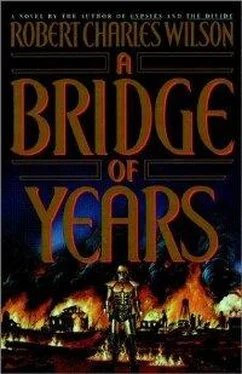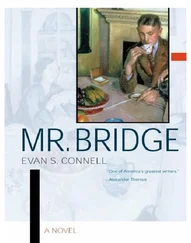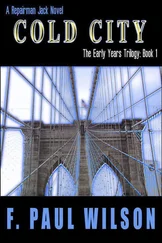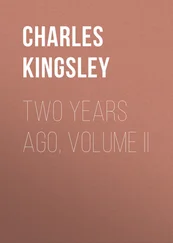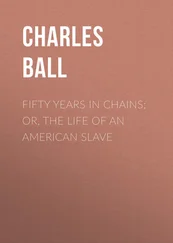But maybe “afraid to sleep” was overstating the case: he wasn’t jittery. It was more like a reluctance to close his eyes in the midst of these curious events. He had convinced himself something was happening here, a kind of subterranean industry, maybe something (if Archer’s history was accurate) that had been happening for a hundred years or more on this spot. Something insectile, something out of the ground; something that loved holes and hidden places. He was developing a sense of it that was almost frighteningly precise. The eyes that regarded him in his dreams were the eyes—not of machines, Archer was wrong; but of something nearly mechanistic in its single-mindedness. A builder’s eyes. But what exactly were they building?
Not something dangerous. Tom felt this to be true; the insects in his dreams weren’t hostile or deadly. But they were fundamentally, utterly strange. It was as if he had reached into a tide pool and touched something that lived there: a variegated, many-limbed polyp so unlike himself that it might have been extraterrestrial.
And of course there was Archer’s video machinery, almost as alien, already whirring away. It had recorded no event and probably wouldn’t. Or maybe—here was a disturbing thought —he would wake up and find the camera dismantled, its useful parts carried away and its carapace open and gutted on the carpet.
He made himself go to bed before the end credits rolled on the “Tonight” show. He lay in the darkness a long time and imagined he could hear the camera whirring in the next room —but surely that was impossible? It was the whirring, more likely, of his own nerves. His own blood pulsing through his ears. He could not stop turning over these questions in his mind, of machines and intelligence and what might have been a faint cry for help; but in time his thoughts tumbled away in odd, skewed directions and he was asleep.
For a second night Tom Winter slept dreamlessly. He woke to the noise of the clock radio, a Seattle AM station emitting prophecies about weather and traffic. Sunlight streamed in through the margin of the curtains, but he felt as if he had just gone to bed. Nothing remained of the night in his memory—except, dimly, the echo of a pervasive hum. It was the sound he imagined a buried dynamo might make.
The sound of his thoughts.
Possibly, the sound of their thoughts.
But he put that idea away.
The kitchen was clean again.
This trick was familiar enough by now that it had ceased to impress him. It was the small details that fascinated. For instance, every minor dot of organic matter had been cleansed from the cardboard pizza sleeve but the box itself was still open at a random angle on the table. Decisions had been made: this is refuse, this is not. And not simple mechanical decisions. Food in the refrigerator was never disturbed. Unopened packages were off limits. There was a logic in it. Repetitive, maybe, but complex and odd. A maid would have tidied away the empty box. A robot would not. But a robot wouldn’t care whether it was caught in the act; a robot wouldn’t wait for the small hours of the night.
The video recorder was still running, still minutes away from eight o’clock. Tom bent past the camera lens and switched it off.
He ejected the tape and discovered his hand was trembling. It took him a good fifteen minutes to hook up the VCR to his TV set … a minute more to rewind the cassette.
He switched on the monitor and when the screen brightened he punched the Play button of the VCR. An image formed and stabilized—the kitchen, rendered odd and sterile by the static camera angle. The phantom numbers at the top left of the screen ticked off 12:01, 12:02 —he had still been awake then and when he turned up the sound he could hear the Carson show playing in the background. Somewhere behind the picture tube he was watching the “Tonight” show in his bathrobe. A sort of time loop— but then they’d know all about that.
This was another phantom thought, unbidden and peculiar. He shook it off.
He punched the Fast Forward key.
A noise bar rolled up the screen; the picture flickered. Minutes rolled by too fast to read. But it was the same messy kitchen he had abandoned last night.
1:00 a.m. blinked past.
2:00.
3:00. Nothing happened. Then—
3:45.
He stabbed the Pause key, too late, and backed up.
3:40:01.
3:39:10.
3:38:27.
At exactly 3:37:16 a.m., the kitchen lights had gone off. “ Goddamn!” Tom said.
The camera was built to function in ordinary house light but not absolute darkness. The screen remained a gray, impenetrable blank. It was so obvious as to be painful. They had fucking turned the lights out.
He hit Rewind and watched the sequence in real time. But there was nothing to see: only the static picture … and, faintly, the sound of the switch being thrown.
Tock.
Darkness.
And in the background … buried in tape hiss, elusive and barely audible … something that might have been their sound.
A chitinous whisper. The brush of metallic cilia on cold linoleum. The sound of a razor blade stroking a feather.
He didn’t even try to call Archer. He was already late; he locked the front door and climbed into his car.
Leaving the house was like shaking off the influence of a long, hypnotic dream. It lingered at the edge of perception and it influenced his decisions. Because he was late he attempted a shortcut through Belltower, only to discover that the through street he remembered (Newcastle down past Brierley) had been widened and diverted to the highway. He hadn’t come this way before and the trip was disorienting, a journey through the familiar to the jarringly new. Here was Sea View Elementary on its green hillside, and the high school a quarter mile south, similar buildings of salmon-colored brick so substantial and so immediate in memory that it would not have surprised him to see nine-year-old Doug Archer rush out to launch a fusillade at the car. But the neighborhood newsstand had become a video arcade and the Woolworth’s had evolved into a Cineplex. Once again, the world had changed while his back was turned.
Declined, his father might have said. Like the earth itself, Barbara would have reminded him. Debris clouding the atmosphere and melting the icecaps. Barbara was one of the few individuals Tom had met who both believed in the greenhouse effect and believed it could be stopped: the precarious balance of the activist. Bad thermodynamics, his father would have told her. You can delay a death but not make a man immortal. The same was surely true for a planet: it didn’t improve with use. Things decline; the evidence was all around him. The evidence was his life.
Maybe so, Barbara would have said, but we can go down fighting. She had believed that half measures were better than none; that even an ineffectual morality was useful in the decade of Reaganomics, the homeless, and the video church. Her voice rang out in his memory.
She was your conscience, Tom thought.
But morality—the morality of weapons research or the morality of selling cars—had a way of twisting out of his grasp. He was twenty minutes late when he arrived at the lot, but there were no buyers waiting and nobody seemed to notice the time; the salesmen were clustered around the Coke machine telling jokes. Tom had clocked in and was standing helplessly on the lot watching cars roar past—thinking about Barbara, thinking about the house—when Billy Klein, the manager, eased up behind him and draped an arm over his shoulder. Klein was wide all over his body, big shouldered and big hipped and broad in the face; his smile radiated predatory vigor and automatic, fake heartiness—an entirely carnivorous smile. Tom turned and took a blast of Tic-Tac-scented breath. “Come with me,” Klein said. “I’ll show you what selling really means.”
Читать дальше
